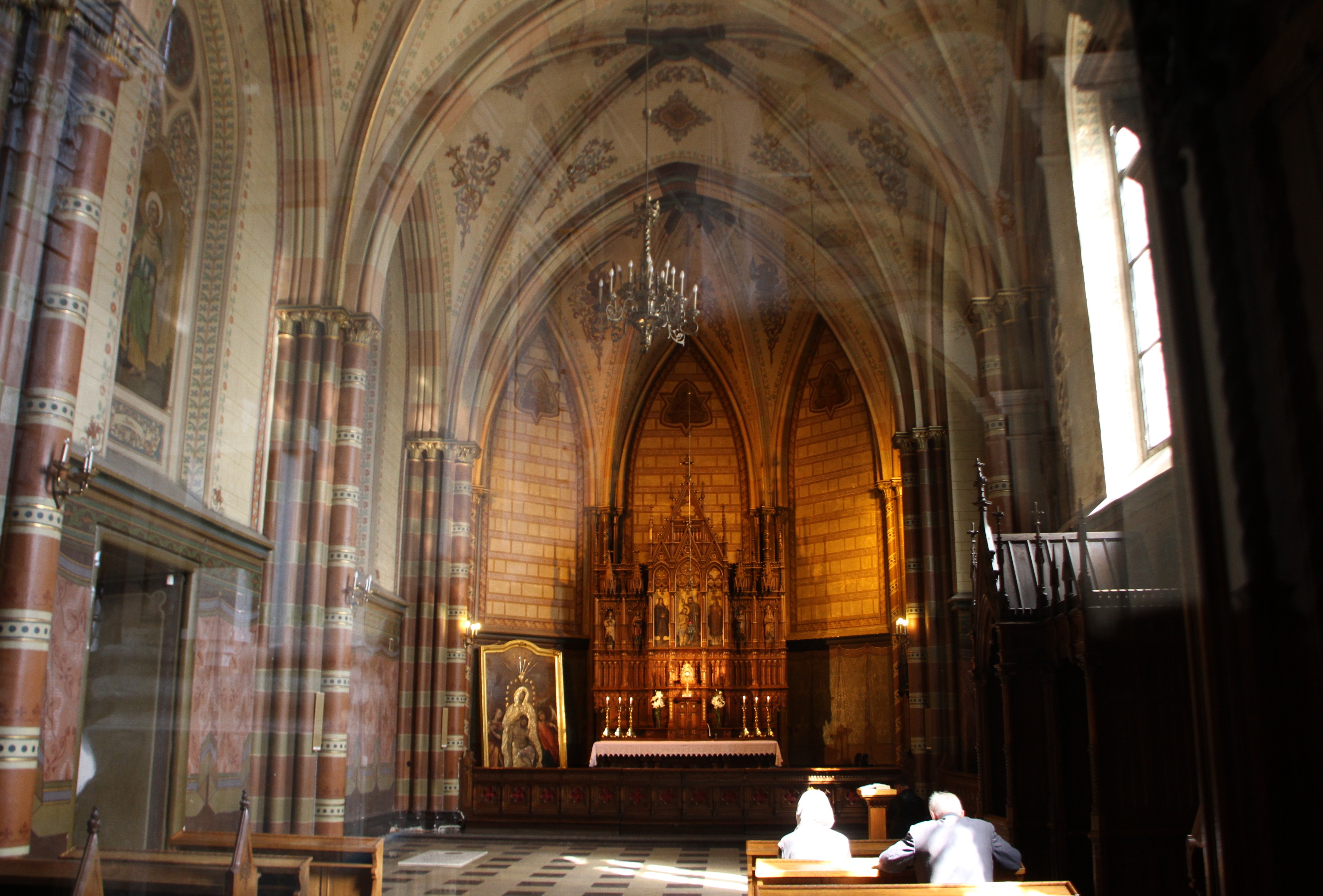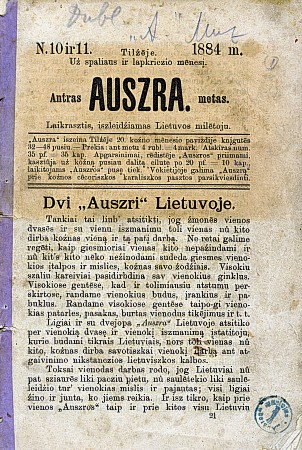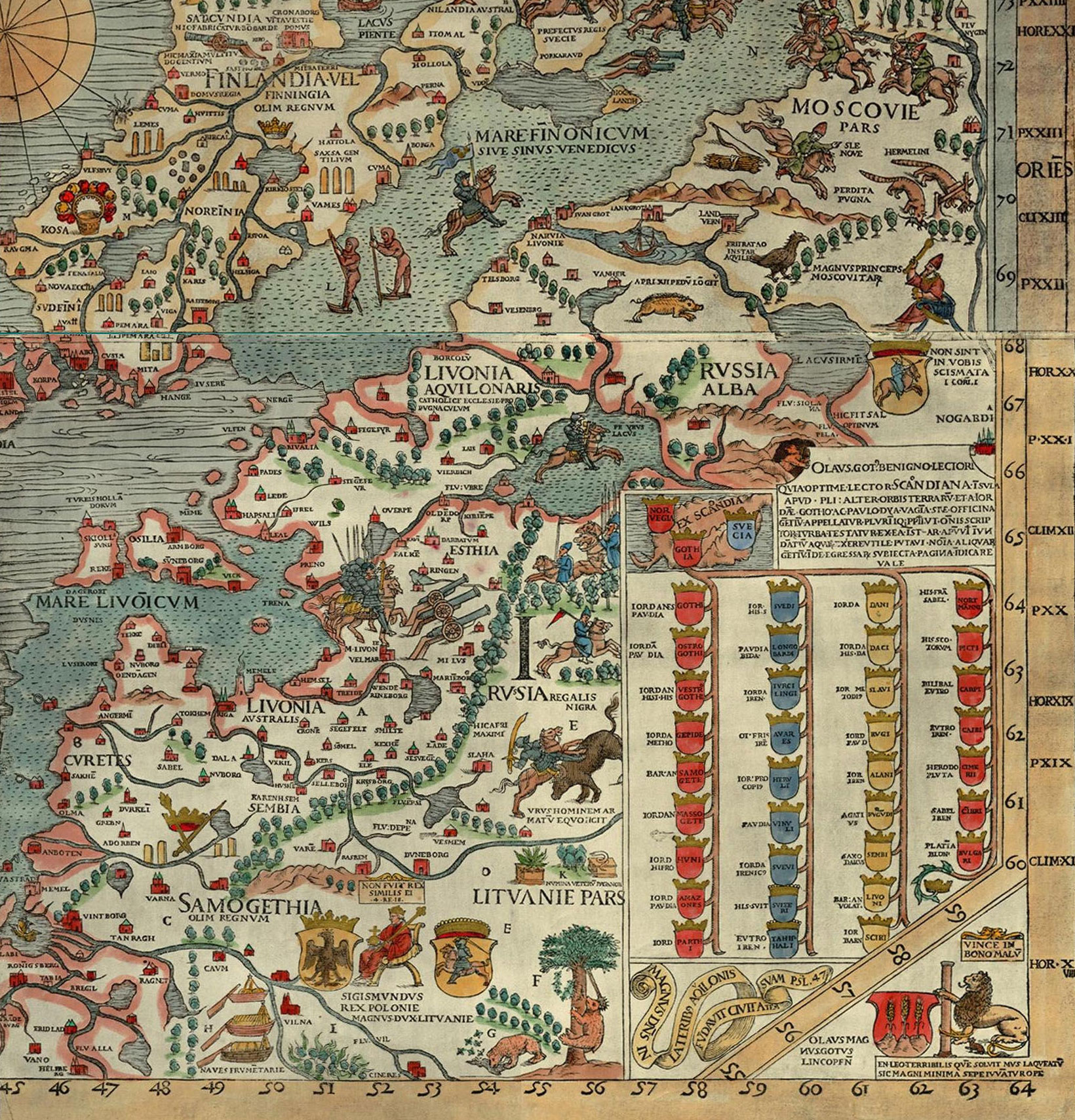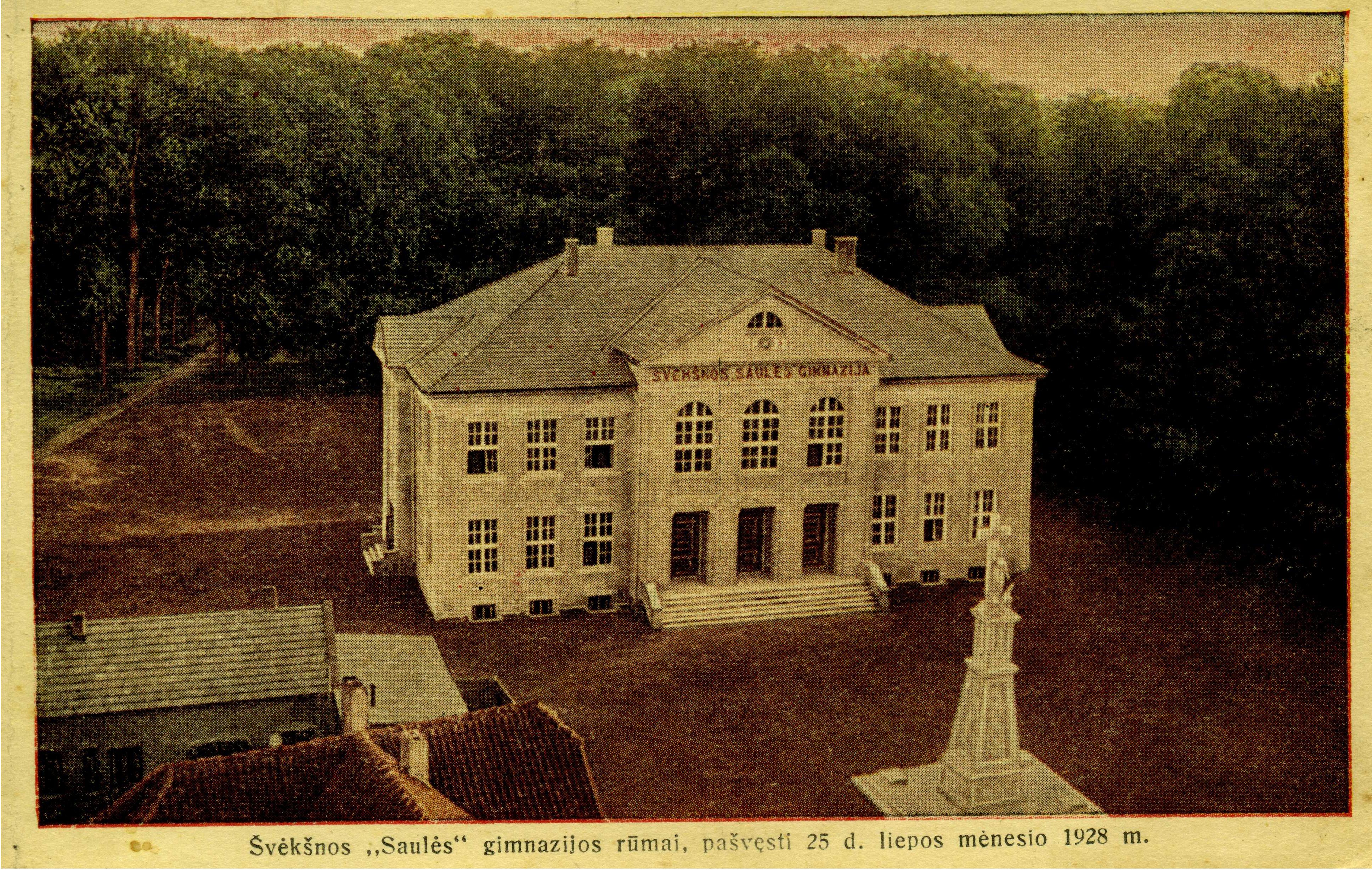|
Mečislovas Leonardas Paliulionis
Mečislovas Leonardas Paliulionis (; 2 December 1834 – 15 May 1908) was a Roman Catholic bishop of the Diocese of Samogitia from 1883 until his death in 1908. Paliulionis studied at the Varniai Priest Seminary and the Saint Petersburg Roman Catholic Theological Academy. After graduation in 1860, he taught dogmatic theology at the Varniai Priest Seminary (which was moved to Kaunas in 1863) until his consecration as bishop of Samogitia in 1883. Paliulionis worked to improve the education of priests, prioritizing practical work among the congregation, including delivering sermons and teaching children basic catechism. He also worked to improve the interior of the Church of St. Peter and St. Paul in Kaunas, which was elevated to cathedral status in 1895. He invited Juozas Naujalis to become the church's organist and sponsored his specialized education in Germany. In the age of rising tension between the Lithuanian National Revival and Polish nationalism, Paliulionis generally ... [...More Info...] [...Related Items...] OR: [Wikipedia] [Google] [Baidu] |
Bishop Of Samogitia
A bishop is an ordained member of the clergy who is entrusted with a position of authority and oversight in a religious institution. In Christianity, bishops are normally responsible for the governance and administration of dioceses. The role or office of the bishop is called episcopacy or the episcopate. Organisationally, several Christian denominations utilise ecclesiastical structures that call for the position of bishops, while other denominations have dispensed with this office, seeing it as a symbol of power. Bishops have also exercised political authority within their dioceses. Traditionally, bishops claim apostolic succession, a direct historical lineage dating back to the original Twelve Apostles or Saint Paul. The bishops are by doctrine understood as those who possess the full priesthood given by Jesus Christ, and therefore may ordain other clergy, including other bishops. A person ordained as a deacon, priest (i.e. presbyter), and then bishop is understood to hold ... [...More Info...] [...Related Items...] OR: [Wikipedia] [Google] [Baidu] |
Lithuanian National Revival
The Lithuanian National Revival, alternatively the Lithuanian National Awakening or Lithuanian nationalism (), was a period of the history of Lithuania in the 19th century, when a major part of Lithuanian-inhabited areas belonged to the Russian Empire (the Russian partition of the Polish–Lithuanian Commonwealth). It was expressed by the rise of self-determination of the Lithuanians that led to the formation of the modern Lithuanian nation and culminated in the re-establishment of an independent Lithuanian state. The most active participants of the national revival included Vincas Kudirka and Jonas Basanavičius. The period largely corresponded to the rise of romantic nationalism and other national revivals of 19th-century Europe. The revival was predated by a short period of the early 19th century known as the "Samogitian revival" led by students of Vilnius University, including Simonas Daukantas and Simonas Stanevičius. The most recent Lithuanian national revival may be ... [...More Info...] [...Related Items...] OR: [Wikipedia] [Google] [Baidu] |
Aleksander Kazimierz Bereśniewicz
Aleksander Kazimierz Bereśniewicz (16 June 1823 – 4 June 1902) was a Roman Catholic bishop of the Diocese of Kujawy-Kaliska from 1882 to 1902. Biography Bereśniewicz was born in Szwelnia. When he was 10 years old, he began his education with the Bernardines in Dotnuva. He was later educated at Kėdainiai. In 1839, he began attending the diocesan seminary of the Diocese of Samogitia, located in Varniai. He first learnt theology at the theological academy in Vilnius, transferring to Saint Petersburg Roman Catholic Theological Academy in 1842. After obtaining a magister degree in theology, he was appointed a professor of dogmatic theology and of the Latin language for the diocesan seminary at Varniai on 16 September 1845. He was ordained a priest on 10 September 1847. In 1850, Bereśniewicz was appointed regent of the diocesan seminary in Varniai. He moved to Vilnius in 1853 at the request of the Russian government, where he was made the prefect of a school. He was appoi ... [...More Info...] [...Related Items...] OR: [Wikipedia] [Google] [Baidu] |
Procurator (Catholic Canon Law)
In the canon law of the Catholic Church, a procurator is one who acts on behalf of and by virtue of the authority of another. In a monastery, the procurator is the friar, monk or nun charged with administering its financial affairs. Bishops have been represented at councils by procurators, as Peter Canisius attended the Council of Trent as procurator for the Bishop of Augsburg. Procurator at Rome Catholic Religious institutes, societies of apostolic life and autonomous particular Churches ''sui iuris'' (especially Eastern Catholic, each using a non-Latin rite) may have representatives resident in Rome acting on their behalf in business they may have with the Holy See, who are titled Procurators General. Internal regular procurators Within the above regular institutes of consecrated life and societies of apostolic life, the person charged with matters such as the purchase of provisions, furniture, books and other supplies may be called a procurator. Canonical litigation ... [...More Info...] [...Related Items...] OR: [Wikipedia] [Google] [Baidu] |
Cathedral Chapter
According to both Catholic and Anglican canon law, a cathedral chapter is a college of clerics ( chapter) formed to advise a bishop and, in the case of a vacancy of the episcopal see in some countries, to govern the diocese during the vacancy. In the Catholic Church their creation is the purview of the Pope. They can be ''numbered'', in which case they are provided with a fixed prebend, or ''unnumbered'', in which case the bishop indicates the number of canons according to the ability of diocesan revenues to support them. These chapters are made up of canons and other officers, while in the Church of England chapters now include a number of lay appointees. In some Church of England cathedrals there are two such bodies, the lesser and greater chapters, which have different functions. The smaller body usually consists of the residentiary members and is included in the larger one. Originally, the term "chapter" referred to a section of a monastic rule that was read out daily dur ... [...More Info...] [...Related Items...] OR: [Wikipedia] [Google] [Baidu] |
Varniai
Varniai (; Samogitian language, Samogitian: ''Varnē'') is a city in the Telšiai County, western Lithuania. In the Middle Ages the city was known as Medininkai (Samogitian language, Samogitian: ''Medėninkā''). Etymology ''Medininkai'' or ''Medenike'' was first mentioned in 1320. This town existed until the end of the 16th century, when the town of ''Varniai'' was founded in the 15th century north of Medininkai, on the left bank of the Varnelė river. The latter name is derived from the Varnelė River, which flows through the town. As early as 1904, Vaižgantas mentions its name as ''Varnė''. In other languages the town is known by: , . In 1491, the Kulm law was granted to Medininkai, and in 1635, the Magdeburg rights were granted to the renamed Varniai. Eventually, the name of Medininkai disappeared from common usage altogether. History Town established in the 14th century, on the bank of the Varnelė River, near an important Samogitian castle. It was the center of the Sa ... [...More Info...] [...Related Items...] OR: [Wikipedia] [Google] [Baidu] |
Uprising Of 1863
The January Uprising was an insurrection principally in Russia's Kingdom of Poland that was aimed at putting an end to Russian occupation of part of Poland and regaining independence. It began on 22 January 1863 and continued until the last insurgents were captured by the Russian forces in 1864. It was the longest-lasting insurgency in partitioned Poland. The conflict engaged all levels of society and arguably had profound repercussions on contemporary international relations and ultimately transformed Polish society. A confluence of factors rendered the uprising inevitable in early 1863. The Polish nobility and urban bourgeois circles longed for the semi-autonomous status they had enjoyed in Congress Poland before the previous insurgency, a generation earlier in 1830, and youth encouraged by the success of the Italian independence movement urgently desired the same outcome. Russia had been weakened by its Crimean adventure and had introduced a more liberal attitude in its i ... [...More Info...] [...Related Items...] OR: [Wikipedia] [Google] [Baidu] |
Juozas Balčikonis Gymnasium
Juozas Balčikonis Gymnasium () is a secondary state school located in Panevėžys, Lithuania. Teaching started in 1727, however, school reorganised to gymnasium in 1858, making it the oldest gymnasium type school in Lithuania. Juozo Balčikonio gimnazija is always one of the top-ranked institutions in the Lithuania for the high quality of its teaching, long lasting traditions and notable alumni. History of names *School of Piarists – 1727-1832 *School of Gentries – 1841-1865 *Realschool – 1882-1915 *Panevėžys Gymnasium – 1915-1949 *Secondary School No. 1 – 1949-1970 *Juozas Balčikonis Gymnasium – 1970-current Notable alumni Ministers and prime ministers * Antanaitis Vaidotas * Birulis Kostas * Jankevičius Juozas * Juodakis Petras * Masiliūnas Jonas * Šakenis Konstantinas * Juozas Urbšys * Jonas Černius * Gintautas Paluckas, PM Diplomats * Stasys Antanas Bačkis * Jasinevičius Raimundas * Morkvėnas Rimantas * Juozas Urbšys * Klevečka Rimutis Publ ... [...More Info...] [...Related Items...] OR: [Wikipedia] [Google] [Baidu] |
Folwark
''Folwark'' is a Polish word derived from the German ''Vorwerk''. A Folwark or Vorwerk is an agricultural estate or a separate branch operation of such an estate, historically a serfdom-based farm and agricultural enterprise (a type of latifundium), often very large. The term has changed its meaning several times throughout history and can therefore be used in various ways. Originally, the associated agricultural estates were usually located outside fortifications or castles and directly in front of them, and were therefore often referred to as ''Folwark'' or, in German-speaking regions, ''Vorwerk'', meaning advanced work or outwork, a kind of outlying defensive outpost. In place names and field names, the word can still be present in this meaning. Later, the term was used for outposts of manor farms with estate operations or individual tenant farms. On larger estates with extensive land areas, there were often smaller and more remote branch operations in addition to the ma ... [...More Info...] [...Related Items...] OR: [Wikipedia] [Google] [Baidu] |
Panevėžys
Panevėžys () is the fifth-largest List of cities in Lithuania, city in Lithuania and the List of cities in the Baltic states by population, eighth-most-populous city in the Baltic States. it occupies with 89,100 inhabitants. As defined by Eurostat the population of the Panevėžys functional urban area that stretches beyond the city limits is estimated at 124,412 (as of 2022). The largest multifunctional arena in Panevėžys, Kalnapilio Arena, formerly known as Cido Arena, hosted the Eurobasket 2011 group matches. Panevėžys is an important cultural and economic hub in the country's northeast. Located on the banks of the Nevėžis River, the city is known for its strong industrial heritage and vibrant arts scene. Panevėžys is also considered as a gateway to the picturesque landscapes of the Aukštaitija region. The city is still known in the Jewish world for the eponymous Ponevezh Yeshiva. Name The name of the city is derived from the Lithuanian language, Lithuanian hyd ... [...More Info...] [...Related Items...] OR: [Wikipedia] [Google] [Baidu] |
Saulė Society
Saulė Society (; "saulė" means ''sun'') was a Catholic educational society active in Lithuania from 1906 to 1940. It organized and maintained Lithuanian-language schools in the Kovno Governorate, Russian Empire, and later interwar Lithuania. The society organized local primary schools, evening courses for adults, libraries and reading rooms, kindergartens. From 1907 to 1914, the society established about 62 primary schools and adult courses. It also organized teachers' courses that grew into Saulė Teachers' Seminary and bookkeeping courses. Several schools were evacuated to Voronezh where the Lithuanian Society for the Relief of War Sufferers organized Lithuanian schools in Voronezh, a number of Lithuanian schools. Saulė Society was able to organize more middle and secondary schools during the German occupation during World War I. In 1919, Saulė maintained ten gymnasiums and progymasiums that had about 1,600 students. The role of the society diminished after Lithuania regained ... [...More Info...] [...Related Items...] OR: [Wikipedia] [Google] [Baidu] |
Society Of Saint Casimir
The Society of Saint Casimir () was a Lithuanian society that published Lithuanian-language books and periodicals, many on Roman Catholic church and faith. Established in 1905, right after the Lithuanian press ban was lifted, the society published a total of about 740 books and several periodicals, including the first full Roman Catholic Bible translation into Lithuanian in six volumes in 1911–1937. From 1918 it operated its own printing press Šviesa. The society was liquidated after Lithuania was occupied by the Soviet Union in June 1940. Secret student society The society can trace its roots to 1888 when Juozas Tumas-Vaižgantas organized a secret student society, known as the Lovers of Lithuania Society (''Lietuvos mylėtojų draugija''), at the Kaunas Priest Seminary. At that time Lithuania was part of the Russian Empire and Lithuanian press ban, Lithuanian-language books we banned by the Tsarist authorities. The society had a written program which emphasized service the ch ... [...More Info...] [...Related Items...] OR: [Wikipedia] [Google] [Baidu] |







